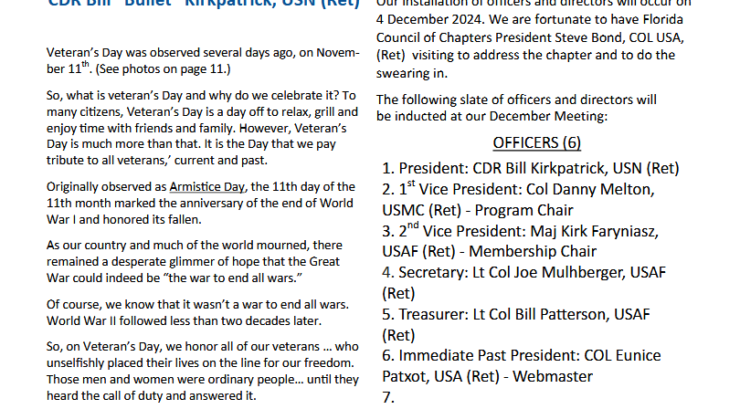What Happens When I Remarry? MOAA Answers Your Concerns on SBP, TRICARE, and More
Recent changes in law, including some stemming from legislation signed this month, have changed what remarriage will mean for you and your earned benefits.
MOAA has heard from members seeking remarriage guidance, with many covered by the situations listed below. These represent some of the top remarriage concerns as they relate to finance.
Situation 1: A retiree is remarrying, and their former spouse holds the Survivor Benefit Plan (SBP).
Once a former spouse is awarded SBP due to a legal divorce document, only a change to the legal document — or the death of the former spouse — will release the SBP back to the retiree. These actions allow the retiree to change the beneficiary to the current spouse. The ex-spouse and current spouse cannot be covered simultaneously.
Situation 2: A surviving spouse wants to remarry and has concerns about SBP and Dependency and Indemnity Compensation (DIC) payments.
One’s age at remarriage can affect survivor benefits. If you are 55 years old or greater, SBP and DIC payments will continue after you get remarried. If you are younger than 55, both SBP and DIC payments will be suspended. If the remarriage ends, payments can start again.
(While it’s a completely different topic, those with questions about the process eliminating the DIC offset from SBP payments can find answers at this link. )
Unless you remarry another military retiree, all other military benefits stop during the remarriage (TRICARE and ID card-related). If the remarriage ends, ID card-related benefits will return, but TRICARE benefits are lost forever. If you have remarried a military retiree, all of these benefits will continue. If the retiree dies, survivor programs and benefits (including TRICARE) will start — unless the SBP is owned by a former spouse.
Regarding Social Security: Survivor payments continue for remarriages at/after age 60 (or age 50 if you’re disabled). If you are the divorced spouse of a worker who dies, you could get survivor benefits as long as your marriage lasted 10 years or more. To collect a survivor benefit, you must be age 60 or caring for a child under age 16. As for retirement benefits, at age 62-plus, you can get retirement benefits on your new spouse’s work if those benefits are higher. As a former spouse, you also have eligibility to a retirement benefit based on your ex-spouse’s work record beginning at your age 62. See the Social Security pamphlets (downloadable PDFs) on retirement and survivors for more details.
Situation 3: A former spouse is awarded retired pay from a military retiree and is concerned about what happens to the retired pay if the former spouse remarries.
Was the retired pay awarded by the divorce court? If so, the retired pay was awarded to the former spouse by legal means and is in the divorce decree. Unless something about remarriage was stipulated in the divorce decree, the retired pay will continue to the ex-spouse.
-
-
- The only ways to change or stop the retired pay to a former spouse are:
- The former spouse gives up the payment through legal means (amended decree), or
- The former spouse dies. Upon the death of a former spouse, notify the pay agency with a death certificate and retired pay will be restored to the retiree.
- If the retired pay is being given voluntarily to the former spouse by the retiree with no legal direction, then the retiree controls where the money goes.
- All servicemembers can find information on former spouse issues via the Defense Finance and Accounting Service (DFAS) at this link.
-
Situation 4: A retiree remarries and wants to start spouse benefits?
The SBP is suspended and no premiums are paid when a retiree does not have a beneficiary, like after a divorce or death of a spouse. To restart your SBP, make sure you notify DFAS (or your Coast Guard pay agent) within the first year of your remarriage. SBP will start again on the first anniversary unless your former spouse has the SBP.
You can only have one SBP beneficiary: your spouse or your former spouse, not both. You will owe back premiums if you forget to notify your pay agency until after the first anniversary.
Retirees have three SBP options after remarriage:
-
-
- Stay at your current coverage level.
- Increase your coverage level if your current coverage is less than the maximum coverage. The higher premium is retroactive, so you will owe the back premiums, plus interest.
- Cancel the coverage with spouse approval.
-
Take your new spouse to the ID card office for an ID card and enrollment in the DEERS-TRICARE registration system.
Situation 5: You divorced a servicemember and qualified for benefits upon divorce (20/20/20 rule).
Upon remarriage, TRICARE health care is lost forever. Other ID card benefits are suspended until the remarriage ends. If you remarry a military retiree, all of these benefits will continue.
Editor’s Note: This should answer most questions regarding benefits after remarriage. MOAA did a nice job on this. Another benefit provided to MOAA members.





